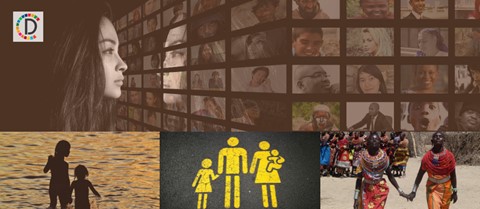Post-COVID situation will exert pressure on NGOs to re-
Acknowledging the role of Civil Society Organisations (CSOs), on April 8, 2020, NITI Aayog reached out to around 92,000 of them, seeking their assistance to support the government in the fight against COVID-19. Responding, a large number of CSO began working with the affected section of the population in the form of life-saving interventions like distribution of food, medicines, shelter, providing quarantine facilities and hygiene kits.

- Country:
- India
From responding to requests for mobile recharge to providing essential commodities, packed food, medicines and even footwear to migrant guests during the COVID-19 lockdown, NGOs will have to re-engineer the way they work in the post-virus world as there could be more pressure. The post-COVID-19 situation is likely to exert pressure on the Non-Governmental Organisations, which are still supplementing the government efforts, say social activists.
Even as civil society organisations have started taking steps to streamline their efforts to integrate remote working with limited space for physical intervention, their sustainability and success will depend upon how effectively the capacity of different players and stakeholders in the CSO space is built and strengthened, claim experts. "NGOs now involved in government's efforts in combating COVID-19, especially in sensitising the people, need to re-engineer the way they function.
With Zoom (an online platform) meetings turning common and work from home becoming a new culture, and social distancing norms to stay for some time, their outreach work may become challenging," T Ramkumar, director of Centre for Social Reconstruction, said. More than all other health issues, the Coronavirus has become the biggest challenge now. Even some of the districts which were COVID-19 free when Chennai emerged as hotspot are not spared now, he added.
"A large number of organisations and even individuals and political party members reached out to the migrant guests and people below the poverty line during the lockdown period. But for them, there would have been hunger and malnutrition around," according to social activist R Raja. "More than now, counselling may play a prominent role in making people return to their normal life, post-COVID," said R Satish Kumar, a psychiatrist.
"This could be an area where the NGOs could gainfully engage in," he added. In contrast to factories and workplaces, which left their informal sector workers with no alternatives, some hotels in Tamil Nadu and the textile hub of Tirupur saw labourers resist the urge to return to their native villages.
They were taken care of by their employers, who provided them basic living facilities and paid part of their compensation, to keep them going. Acknowledging the role of Civil Society Organisations (CSOs), on April 8, 2020, NITI Aayog reached out to around 92,000 of them, seeking their assistance to support the government in the fight against COVID-19.
Responding, a large number of CSO began working with the affected section of the population in the form of life-saving interventions like distribution of food, medicines, shelter, providing quarantine facilities and hygiene kits. The Participatory Research in Asia (PRIA) and Voluntary Action Network India (VANI), which jointly conducted a study to understand the various roles played by civil society organisations in India during the pandemic, found 73 per cent of Indian CSOs carried out immediate relief measures following the lockdown by reaching out to people.
They supplied commodities of immediate use like food material, food rations, masks, sanitisers and other essentials required to sustain the uncertain times that lay ahead. Forty-one per cent of CSOs were engaged in securing the safety and hygiene of the community and the health care professionals by distributing soaps, sanitisers, masks and Personal Protection Equipment (PPE).
The report also highlighted that around 42 per cent of CSOs engaged with the state level government to take the targeted intervention to the people effectively. Various organisations working at ground level ensured that during the toughest times and despite the restrictions on movement, they did not leave anyone behind in their efforts.
PTI JSP SA APR ROH ROH.
(This story has not been edited by Devdiscourse staff and is auto-generated from a syndicated feed.)
ALSO READ
Rayzon's Sustainable Six: A Green Partnership with Chennai Super Kings and Gujarat Titans
Vision11 signs up as Chennai Super Kings' Official Fantasy Sports Partner
Chennai NGO holds awareness event on 100% 'ethical' voting
Rajiv Gandhi assassination case convicts deported to Sri Lanka from Chennai airport
Chennaiyin FC and Norwich City FC join forces to work on grassroots










